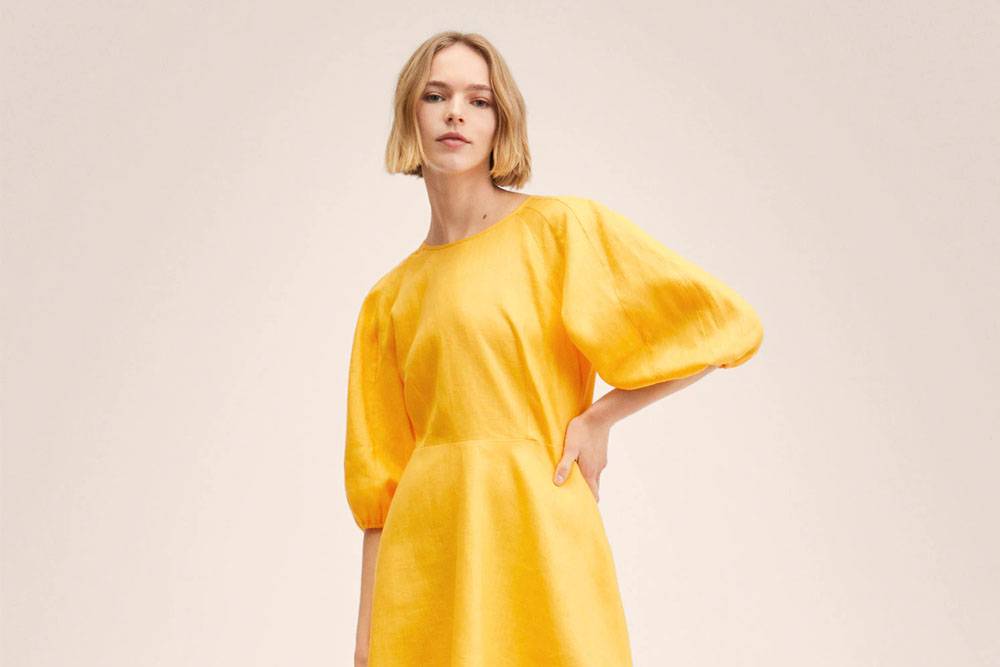
Mango is a Spanish fashion retailer that launched a new eco-friendly collection called Committed Collection. It's committed to designing more sustainable products with more eco-friendly fibers and processes.
Mango is committed to sustainability initiatives, responsible manufacturing, and environmentally-friendly fabrics made from organic or recycled materials.
The clothing retailer offers a sustainable collection called Committed Collection. It uses sustainable materials like organic cotton and recycled cotton to lower its environmental impact.
However, the large majority of Mango's business activities remain disastrous to the planet. The multinational clothing-retail company mostly creates fast fashion for men, women, and children.
In reality, only a small portion of materials used by Mango are recycled and made from renewable resources. Many of them remain highly damaging to the environment and human health.
Panaprium is independent and reader supported. If you buy something through our link, we may earn a commission. If you can, please support us on a monthly basis. It takes less than a minute to set up, and you will be making a big impact every single month. Thank you!
Sustainability Rating: 5/10
Rating FAQ
Category: Clothing, accessories, shoes, bags, jewelry
For: Women, men, children
Type: Basics, denim, dresses, knitwear, activewear, underwear, loungewear, swimwear, outerwear, nightwear, maternity, heels, sandals, flats, boots, sneakers
Style: Casual, formal, chic, classic, rock
Quality: Low
Prices: $
Sizes: 2XS-2XL, 0-14 (US), 2-16 (UK), 32-44 (EU), 4-18 (AU), plus size
Fabrics: Cotton, linen, hemp, ramie, jute, lyocell, modal, viscose, cupro, acetate, polyester, nylon, spandex, polyethylene, polypropylene, acrylic, neoprene, leather, wool, silk, down
100% Organic: No
100% Vegan: No
Ethical & Fair: No
Recycling: Yes
Producing countries: Bangladesh, Bulgaria, Cambodia, China, Egypt, Ethiopia, India, Indonesia, Italy, Morocco, Myanmar, Pakistan, Portugal, Romania, Spain, Tunisia, Turkey, Ukraine, Vietnam
Certifications: GOTS, OCS, GRS, RCS, BCI, FSC
How sustainable is Mango's Committed Collection?
The brand new Committed Collection is fashion giant Mango's modern and responsible initiative to continue the sustainability transformation it started several years ago.
Mango is committed to protecting biodiversity, reducing its consumption of water, energy, and other resources, avoiding waste, and combating climate change.
With its Committed Collection, Mango wants to contribute to change within the industry and ensure a better future for all. It's also working on alternatives to help eliminate plastic from its supply chain and promote circularity.
However, the majority of Mango's clothing remains detrimental to the environment. Only a very small proportion of the materials used by Mango are environmentally friendly and sustainable.
Mango only uses very few eco-friendly fabrics such as organic cotton and hemp, or recycled materials such as recycled cotton, recycled polyester, and regenerated nylon.
The Committed Collection is a very small collection dedicated to sustainable fashion when considering the clothing business and its operations as a whole.
Most of the fabrics used by the retail giant are either natural without relevant certifications, such as cotton or linen, or synthetic petroleum-based fibers such as polyester, nylon, acrylic, and more.
The Committed Collection also includes a little amount of semi-synthetic fibers or regenerated cellulosic fabrics such as Tencel lyocell, modal, acetate, cupro, and viscose. Tencel is an eco-friendly fiber made with wood pulp from certified sustainable forests.
How ethical is Mango's Committed Collection?
Mango manufactures its Committed Collection in Turkey and many other East Asian countries where human rights and labor law violations still happen every day.
Mango works with more than 450 suppliers in more than 890 factories, including manufacturers in Bangladesh, Cambodia, China, Pakistan, and Vietnam, which are high-risk regions for clothing production.
Mango used to employ Turkish sweatshops in Istanbul, where workers were forced to work without being paid. Modern slavery cases involving Mango in Moroccan factories were previously reported.
Mango now cares more about its suppliers with higher transparency and worker empowerment initiatives. But the brand still doesn't pay a living wage across its supply chain to produce its Committed Collection.
The Committed Collection doesn't demonstrate any labor certification standard that would ensure good working conditions, decent living wages, health, safety, and other human rights for workers in its supply chain.
Sustainability commitments for the Committed Collection
Mango has committed to having 100% of its garments have sustainable properties by 2022 in the Committed Collection and the rest of the business. It's also working towards 100% sustainable packaging and reducing CO2 emissions.
Mango has a final goal of eliminating single-use plastics by 2030. With its Committed Collection, it prioritizes raw materials with low environmental impact and aims for 100% cellulosic fibers of controlled origins by 2030.
Mango plans to reduce its greenhouse gas (GHG) emissions by 30% by 2030 to achieve net-zero emissions in 2050. It will achieve 100% renewable energy in its operations by 2030.
For its Committed Collection, 100% of its cotton will be sustainable (organic, BCI, and recycled) before 2025. And 50% of polyester it uses in its garments will be recycled before 2025.
Reviews And Experiences With Committed Collection
Have you had (good) experiences with shopping at or the products of Committed Collection? Then leave us your rating below.
What We're Up Against
Multinational corporations overproducing cheap products in the poorest countries.
Huge factories with sweatshop-like conditions underpaying workers.
Media conglomerates promoting unethical, unsustainable products.
Bad actors encouraging overconsumption through oblivious behavior.
- - - -
Thankfully, we've got our supporters, including you.
Panaprium is funded by readers like you who want to join us in our mission to make the world entirely sustainable.
If you can, please support us on a monthly basis. It takes less than a minute to set up, and you will be making a big impact every single month. Thank you.

















0 comments